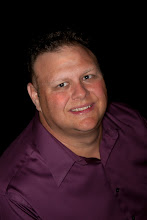I am currently reading “Doughboy War: The American Expeditionary Force in World War I” by James Hallas. The book, which covers the war years of 1917-1918, is a collection of passages taken from journals, diaries, letters, personal narratives and unit histories. I was struck by differences in attitudes of Americans then as compared to now.
The following two passages are prime examples.
The first was written by a young American who was killed in the battle for the Ourcq River, fought in France late July 1918.
America shall win the war.
Therefore I will work,
I will save,
I will sacrifice,
I will endure,
I will fight cheerfully and do my utmost,
As if the whole issue of the struggle
depended on me alone.
While I know that this does not represent the sentiment of every American, I do believe that it is indicative of the American people at the time. Is it any wonder the people of this generation would start what would be called the “American Century?” Or that they would go on to produce the generation of Americans that would come of age during the Great Depression and then go on to defeat the Marxist ideologies of Nazism, fascism, and communism?
It is striking when one compares this to the young people currently taking part in the Occupy Wall Street protest. To them the above words are so foreign, the concepts so alien, that they might as well have been written by a Martian. Unfortunately, a half century of entitlement propaganda, has ensured that these people will never be able to produce more than ever increasing demands.
The second passage highlights the difference in how we defined ourselves as Americans. It was taken from a German intelligence report in 1917. This report was written shortly after the initial engagements were fought between the untested Americans and the veterans of the Imperial German Army.
Only a few of the troops are of pure American origin; the majority is of German, Dutch, and Italian parentage, but these semi-Americans, almost all of whom were born in America and never have been to Europe before, fully feel themselves to be true born sons of their country. [Emphasis added by author of post]
After decades of multiculturalism this too has become something of a lost sentiment or attitude. Today first generation Americans are more likely to identify themselves by their heritage than as “true born sons of their country.”
This forces me to ask, “Do we even know what it is to be American or has the concept become so diluted by hyphens that we that first generation Americans can no longer fully feel themselves to be true born sons of their country?”







No comments:
Post a Comment